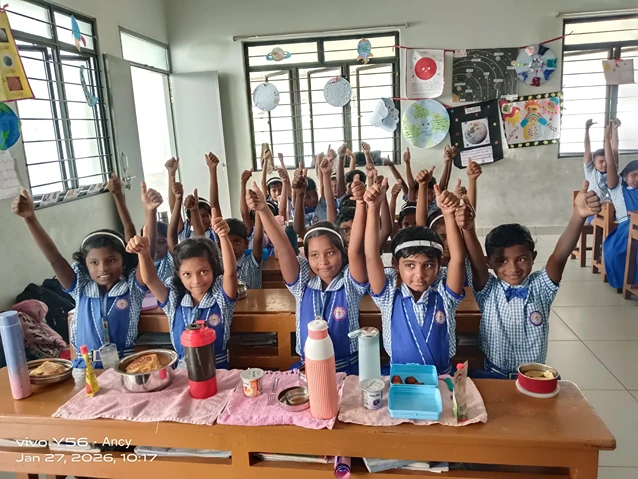Primary

Primary (Grade 1 and 5)
The primary level curriculum offers an exciting and creative learning environment with an inter-disciplinary appreciation of languages, mathematics, science and social studies as individual and integrated subjects. We recognise the twenty-first century demands of high standards of linguistic ability and we help our students acquire the linguistic competence required in various life situations. The wide range of curricular and co-curricular opportunities offered, helps instil confidence and discipline in children, as it reflects in their ability to express themselves, in addition to developing pragmatic skills. These activities encourage and equip students to participate in inter-house academic, cultural and sports events. Besides academic activities, students also engage and participate in assemblies, concerts, cultural events and drama productions, which help shape their confidence and help them make fulfilling life choices and authentic contributions. Rhymes area socially engaging, playful and a developmentally appropriate way for young children to hear, identify and experiment with the sounds of language.
